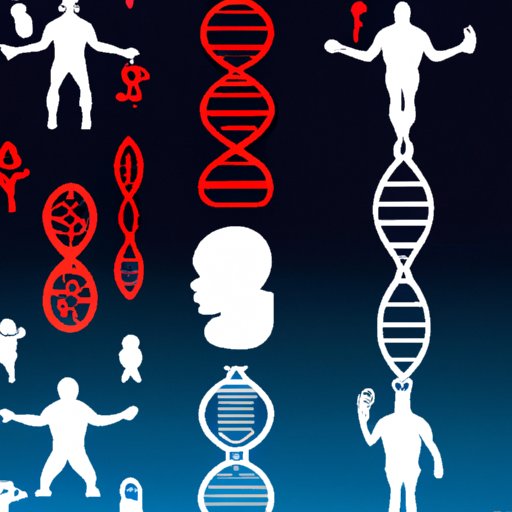Introduction
The question of when human life begins has long been a source of debate. While many people have their own beliefs and opinions on the matter, science has provided some insight into the answer. In order to understand when human life begins according to science, it is important to first define what exactly constitutes “human life”.
In general, human life is defined as the period of time between conception and death. Conception, or the moment when a sperm fertilizes an egg, marks the beginning of a new individual’s life. From that point onwards, the individual will grow and develop until death.

Exploring the Science Behind When Human Life Begins
When looking at the scientific perspective on when human life begins, there are several key points to consider. Firstly, what does science say about the moment of conception? Secondly, what is the debate around the beginning of human life? And finally, how do different scientific fields view the start of human life?
When it comes to the moment of conception, science is clear: a new human life begins at this point. This is due to the fact that when a sperm fertilizes an egg, the two cells fuse together to form a single cell known as a zygote. This new cell contains all the genetic information needed to create a unique individual with its own distinct characteristics.
However, while scientists agree that life begins at conception, there is still debate surrounding the exact moment when a fetus can be considered an individual. Some argue that a fetus should not be considered a person until it is viable outside the womb, while others suggest that the fetus should be given rights from the moment of conception.
Different scientific fields also have different views on when human life begins. For example, biologists tend to view life as beginning at conception, while medical professionals may view life as beginning later on in pregnancy. Philosophers and theologians often take a more philosophical approach and focus on the ethical implications of when life begins.
The Role of Genetics in Determining When Life Begins
Another important factor in determining when human life begins is genetics. Genetics plays a vital role in the development of a fetus, as it determines the individual’s physical and mental characteristics. By understanding the biology of human development, we can gain an insight into when life begins.
Advances in genetic technology have also had an impact on when life begins. With the introduction of genetic testing, it is now possible to determine the sex of a fetus as early as six weeks into pregnancy. This has led to some people arguing that life begins even earlier than conception, as the fetus already possesses its own unique genetic makeup.
Conclusion
In conclusion, science has provided us with some insight into when human life begins. While there is still debate surrounding the exact moment when a fetus can be considered an individual, the consensus among scientists is that life begins at conception. Genetics also plays an important role in determining when life begins, as it determines the individual’s physical and mental characteristics. Finally, advances in genetic technology have made it possible to determine the sex of a fetus as early as six weeks into pregnancy, leading some to believe that life begins even earlier than conception.
Ultimately, while science has provided us with some answers to the question of when human life begins, the debate is still ongoing. Each individual must make up their own mind on the matter based on their own beliefs and opinions.
(Note: Is this article not meeting your expectations? Do you have knowledge or insights to share? Unlock new opportunities and expand your reach by joining our authors team. Click Registration to join us and share your expertise with our readers.)
